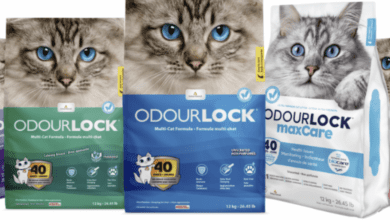Supply, demand and meeting customer expectations

Demand for pets over the past few months has soared. Wood Green, The Animals Charity’s dog rehoming enquiries increased by more than 253% during lockdown and over 20,000 people contacted Wood Green about getting a new pet between April and June – more than half of which were for dogs. This sudden surge in demand has been felt across the sector, with charities and breeders inundated with hopeful, prospective pet owners.
Of course, none of us were prepared for this and, unfortunately, it’s simply not possible to find everyone a new pet. Wood Green rehomes around 700 dogs each year, a process involving a thorough assessment of both the dog and the prospective owners’ needs and requirements: home set-up and garden size, home alone time, training requirements, other pets or children in the home, preference of breed type and size, etc.
Whilst we find the majority of dogs a loving new home within a few weeks, it’s still a challenge for Wood Green to find homes for its ‘high-end’ dogs – despite the vast number of enquiries. These animals typically require more work than your ‘average’ dog, potentially due to behavioural issues that need careful management or ongoing medical needs, and can remain in Wood Green’s care for significantly longer. Speaking to our contacts at other animal charities, our experiences are mirrored.
A large amount of people turn to rehoming charities like Wood Green as a first port of call when searching for a new pet, which is fantastic, but there just aren’t enough rescue dogs to meet demand – or the available dogs are not desirable or not suitable. In this respect, managing customer expectations is incredibly difficult and Wood Green really wants to help anyone considering getting a new pet, as we have decades of experience to share and can guide people at every step of their pet ownership journey.
We understand how difficult it is to find the right dog, especially in the current circumstances, and we also understand that it may lead to people making compromises. Taking risks can lead to more heartache and cost down the line if a pet isn’t the right fit, for any reason. Driven to alternative means of acquiring a new pet, too many people have unknowingly been tricked by unscrupulous sellers offering up puppies who are too young to be separated from their mothers, at prices well over the usual odds.
Restrictions in place due to COVID-19 have meant that these unscrupulous sellers can much more easily come across as legitimate, with puppies introduced via video calls and with exchanges happening very quickly – not allowing buyers to see inside their homes, meet the puppy’s mother and do the usual investigation. Puppies are being sold for around 40% more than usual, often four figure sums, and people are willingly paying these prices as they are not prepared to wait for a responsible breeder, or the right dog to be available at a rescue centre.
As we move beyond the pandemic, pet owners are already starting to contact Wood Green for advice relating to puppies bought during lockdown due to medical or behavioural concerns. We anticipate that this will only increase as these young dogs move into adolescence and demonstrate more challenging behaviours, and as underground puppy farming continues to be a lucrative business. We actively encourage people to contact us for help as the earlier pet owners speak to us, the more likely they are to rectify problems and improve the relationship with their pet in the long-term, rather than only speaking to us at the point where they feel they can no longer care for a pet.
Lucy’s Law, which came into effect this April, is a much-needed piece of legislation but the thing that will have the biggest impact on black market pet selling is consumer behaviour – only buying from reputable sources that meet high standards of welfare, even if it means waiting. Wood Green recognises that people need help to identify whether a source is reputable, and equally that criminals are incredibly skilled at presenting themselves as responsible. Puppy scams have trebled in recent months, with many people left out of pocket and with either very poorly puppies or nothing at all to show for it.
On top of this, the number of people wanting to hand pets into charities like Wood Green is at its lowest rate ever; either keeping pets in their homes, giving them to friends or family or selling them online, which doesn’t always mean the best outcome for the animal. For anyone who is no longer able to care for a pet, the best thing to do is contact a charity like Wood Green. We can listen and offer potential solutions to keep the pet in the home through advice or more tailored support. If the pet does need to come into our care, they will be assessed for their medical and behavioural needs, neutered and vaccinated if required, expertly matched with a new home and offered lifelong advice and support. Buying a pet online has challenges and pitfalls – and so does selling them, especially for inexperienced sellers who may not know the right questions to ask.
As the tide is rising from every angle – with the well-intentioned general public eager to welcome new pets into their homes, a black market of pets available, and a drought of pets being brought to Wood Green – the charity, and the sector, are trying to navigate this incredibly strange time to help pets and owners in need.
By Linda Cantle, director of pet and owner support services at Wood Green, The Animals Charity













